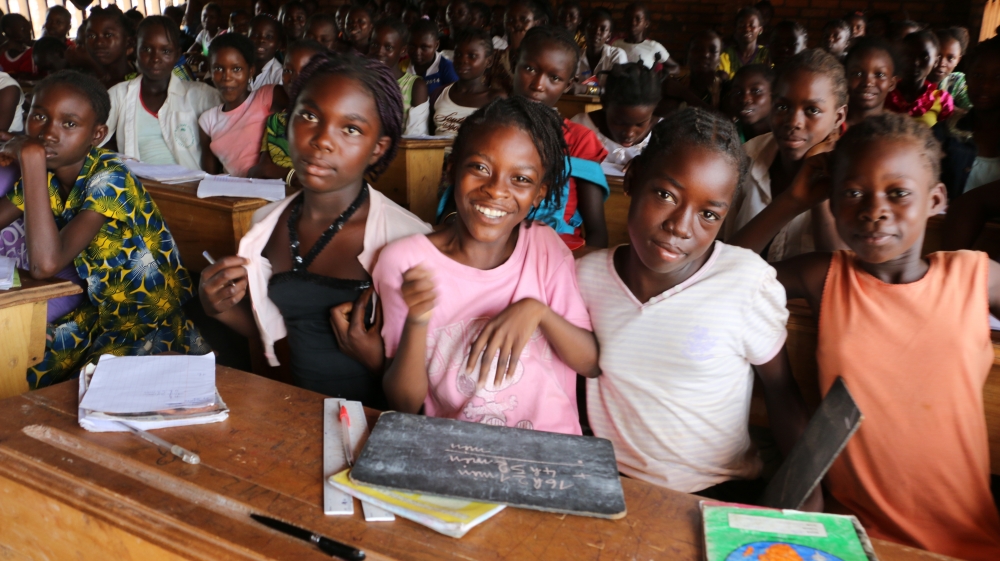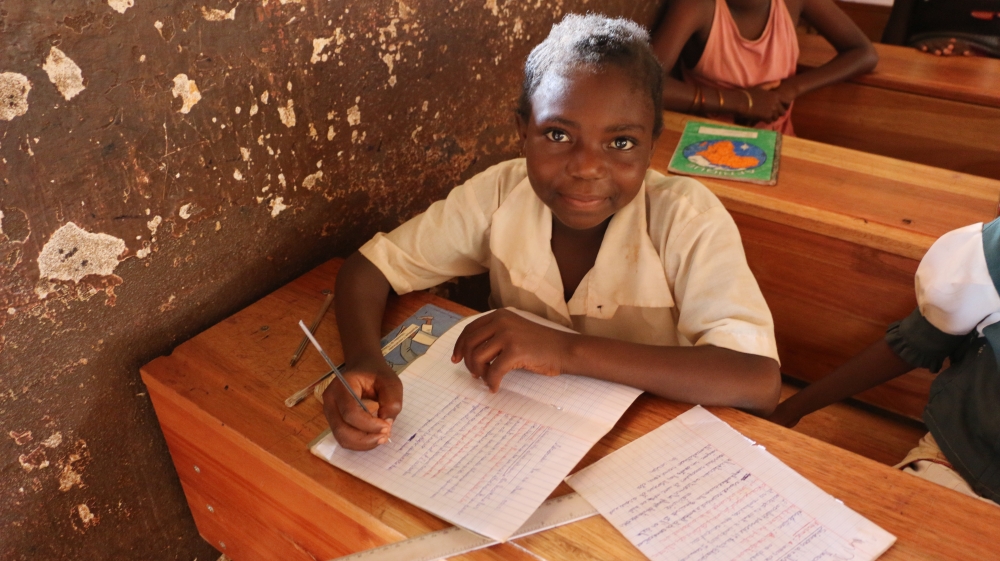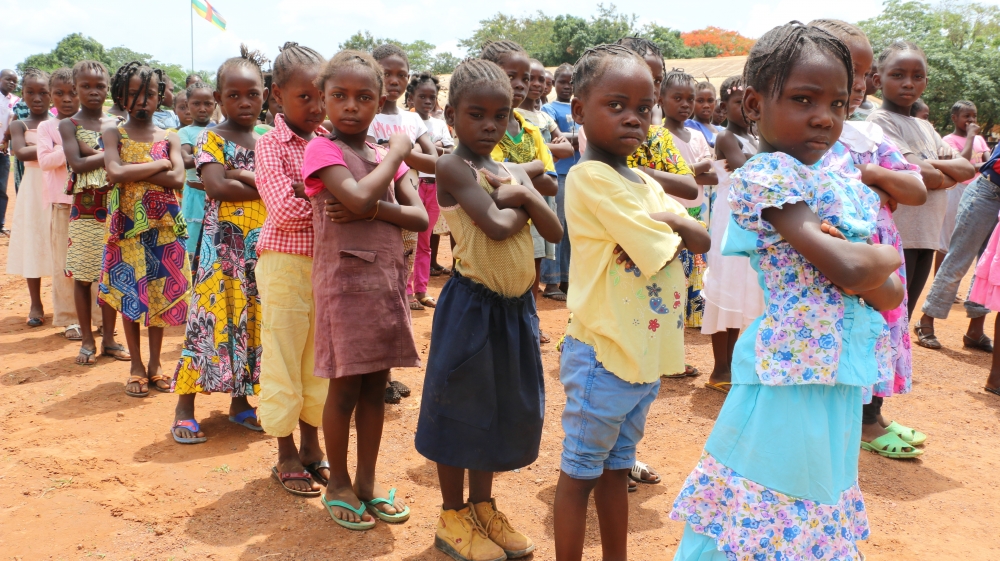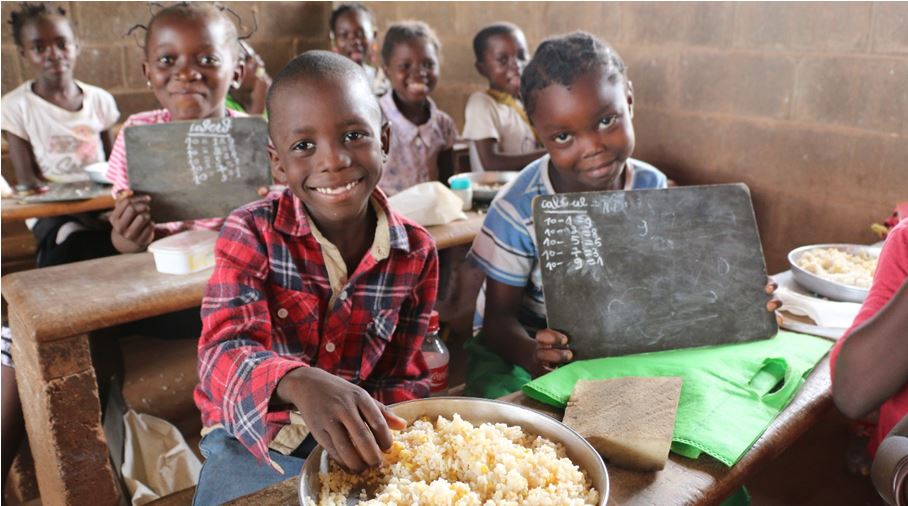In the Central African Republic, WFP School Meals Go Beyond Food

Across the Central African Republic (C.A.R.) kids are contending with: worms!
Intestinal worms: left unchecked, these tiny creatures can devastate a young child’s life and put entire futures at risk. Infections can begin early in a child’s life, affecting their health and mental development. And while the United Nations World Food Programme’s (WFP) school meals are crucial to nutrition, attendance and more – children just can’t study, focus or even get to school when they’re seriously sick.
So in collaboration with UNICEF and the Ministry of Education, the U.N. World Food Programme launched a deworming campaign as part of its school meals program, aiming at improving the health of 250,000 children across the country.
Classrooms Are Filling Back Up
Each day, some 70,000 children in 90 schools across the capital of C.A.R., Bangui, receive U.N. World Food Programme school meals. The deworming campaign was launched this week at the Notre Dame Elementary School. The initiative is set to roll out in elementary schools nationwide.
Conflict across the country has taken a heavy toll on the people of C.A.R. The good news? Thanks to school meals, deworming efforts and more, students are returning to school and the classrooms are filling up with young minds eager to learn.
In one fifth-grade math class, children are learning how to tell the time – adding together the hours and minutes on the clock. Some are putting the lesson into practice already.
“I come to school because it is fun to learn, and also because of the meals we get every day!,” says Nadia. “It’s only 11, but I’m already counting down til lunch because the food is so tasty!”

Like many children who attend school at Notre Dame Elementary, 12-year-old Eudoxie (above) missed out on months of education during the conflict because it was too unsafe for children to make their way to school. Now that she is back at her desk, she is ready to start taking notes – and work towards her dream of being a scientist.
“Even when school re-opened, my mother was worried about sending me because it could have been still dangerous. I hope Bangui stays safe so that I can continue coming. And now I can stay focused in my classes with the hot meals we get at lunch time,” Eudoxie says.

Building Resistance With Deworming Tablets
Time to line up! In the playground, children wait to receive their deworming tablets. But their crossed arms don’t mean that they’re angry about missing their recess.
In C.A.R., crossed arms demonstrate a sign of respect that they are listening and paying attention to their teachers. A single deworming tablet is effective for six months and makes children more resistant to infections. A healthy child can be more active in school and perform better academically.
A Community Effort
In C.A.R., the Parents and Teachers Association (PTA) does more than hold bake sales. Here, a mother from the PTA serves school meals prepared by other mothers in the school’s courtyard. They’re supported by the U.N. World Food Programme.
For many children, school meals are the only food they eat during the day. The meals typically include rice, beans, oil, and salt.
For eight-year-old Freddy, the daily meal that he receives at school is his main source of calories for the day.
“Every day, I eat everything on my plate,” he says, beaming.

Photos and story by WFP staffer Sayaka Sota, based in Bangui, C.A.R. This story originally appeared on WFP.org.




